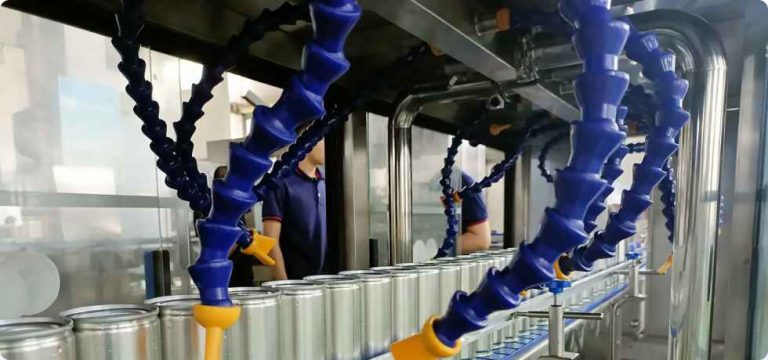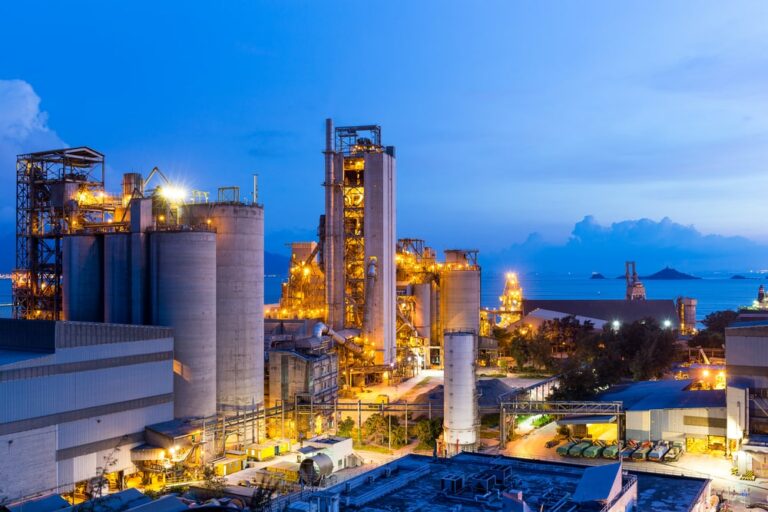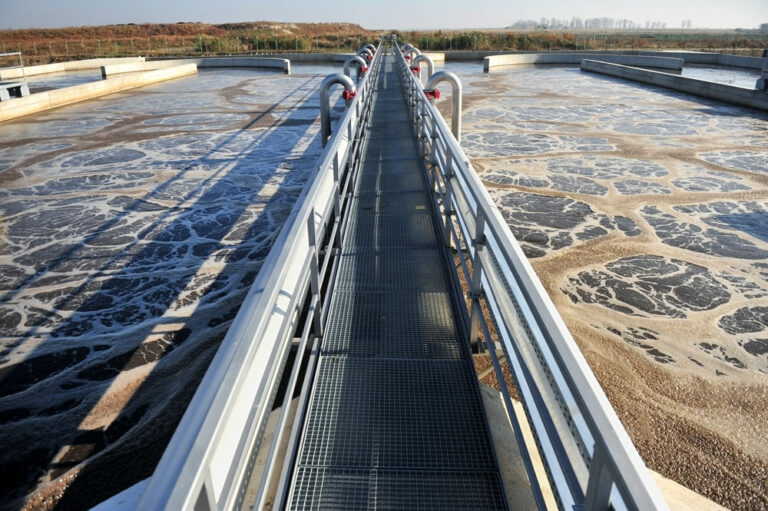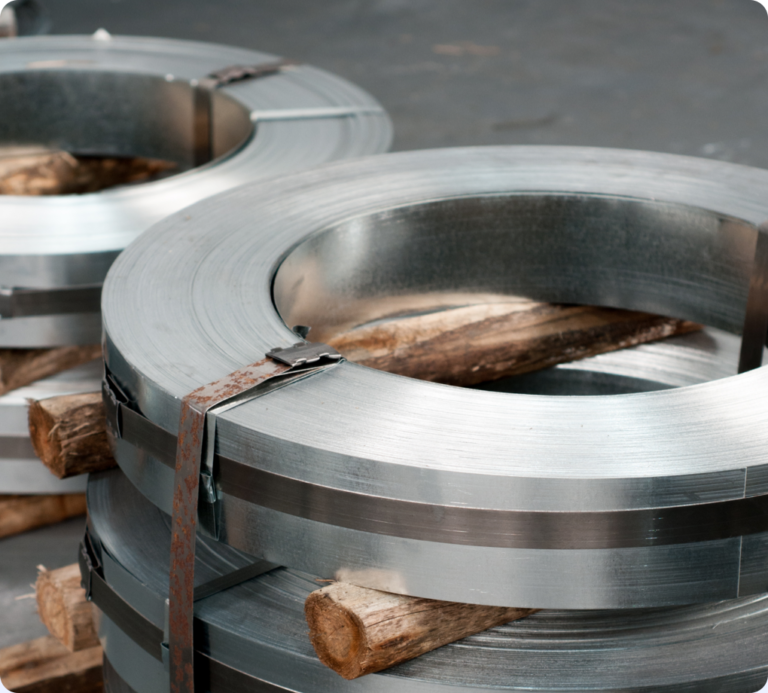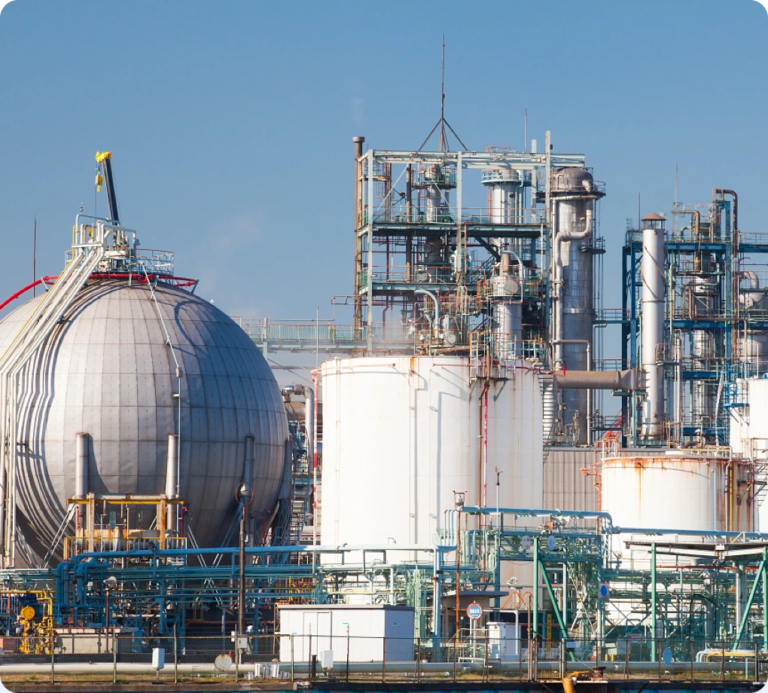Many end user is confused why the blower technology is upgraded to turbo blower? Comparing with traditional roots blower,single-stage and multistage centrifugal blower,RAETTS centrifugal air suspension blower and maglev turbo blower has simple structure:they don’t need coupling connection and oil-lubrication.The daily maintenance of turbo air blower only need to change the dust filter.The main parts of the turbo blower is including high speed permanent magnet synchronous motor(efficiency is about 97%),ternary flow impeller(Variable efficiency up to 87%),suspension bearing(air foil bearing or maglev bearing),VFD, and PLC control system.The traditional industrial air blowers normally use three-phase asynchronous motor(efficiency is about 88%),lobe impeller(efficiency is about 60%),ball bearing,belt or coupling connection.Since the air turbo blowers don’t need belt or coupling for connection,so there is not energy lost during transmission.The efficiency of the turbo blower is about 76% while the roots air blower efficiency is about 40% and multistage air blower efficiency is about 50%.The total energy saving of centrifugal turbo blower is about 25%-30%,comparing with traditional roots blower or other type centrifugal blower.

| Product name | Air suspension centrifugal blower |
| Keyword | oxygen supply blower for fermentation ,Vacuum Blower Systems,industrial centrifugal blowers,wastewater treatment blowers,cement plant blower |
| Place of Origin | China |
| Feature | RAETTS air bearing turbo blower is a brand-new concept blower, which integrates the main core technologies such as “air suspension bearing”, “permanent magnet ultra-high-speed motor”, “high-precision aviation-grade impeller”, and creates a new era of ultra-high efficiency ,low noise and low energy consumption. |
| Dimensions | 751mm*728mm*758mm, (Contact us for specific information to confirm) |
| Applicable Industries | metal treatment, etc. |
| Weight | 303kg |
| delivery date | the common delivery time will be 30-40 days. |
| terms of paymen | RAETTS accept payment by T/T(30% advance payment,70% before shipment) |
| Life span | 13 years (Contact us for specific information to confirm) |
| After-sale service | RAETTS warranty time for air bearing blower and maglev turbo blower is 24months,for high speed centrifugal blower is 12 months. |
| Advantage | We keep good quality and competitive price to ensure our customers benefit |
| Packing | 852x832x867mm(Contact us for specific information to confirm) |
| OEM/ODM | Customization Service Provided |
| Sales country | All over the world for example:Mauritania,Burundi,Romania,Angola,Tuvalu,Czech Republic,Turkey,Comoros,Clipperton Island |
| MOQ | 3pcs(Contact us for specific information to confirm) |
| production capacity | production capacity RAETTS production quantity for air bearing blower and maglev turbo blower is about 200pcs/month,for high speed centrifugal blower is about 700pcs/month. |
| raw materials | RAETTS air blower impeller in made of aluminum alloy,enclosure material is carbon steel,rotor material is cast iron.If customers need other special materials,we can also customized according to customers requirements |
| technology | RAETTS air bearing blower technology is originated from South Korea and maglev turbo blower technology is originated from Germany.RAETTS also have R&D team from Xi’an Jiaotong University |
| quality system | RAETTS has quality management system certificate ISO9001:2015 and enviromental management system certificate ISO14001:2015 |

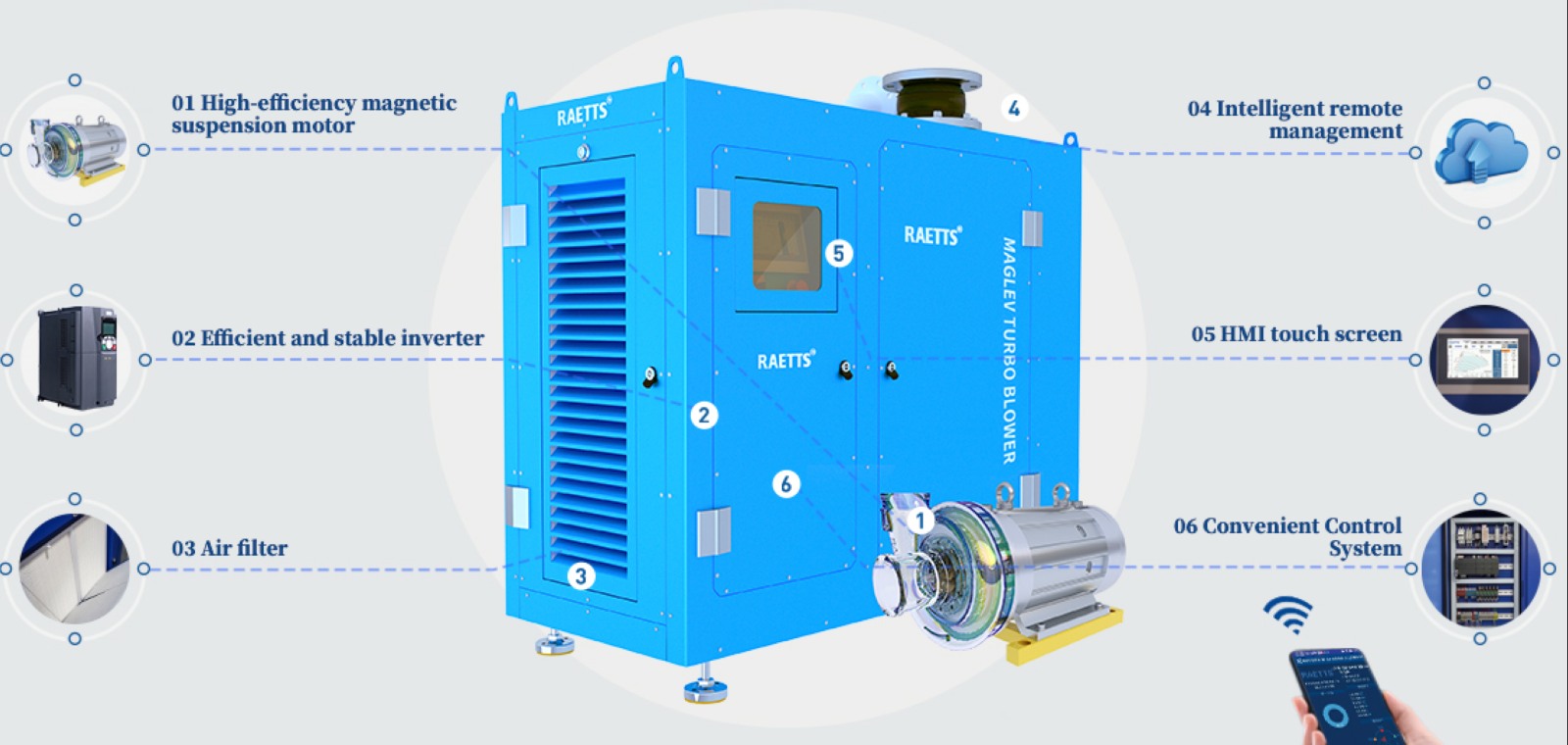
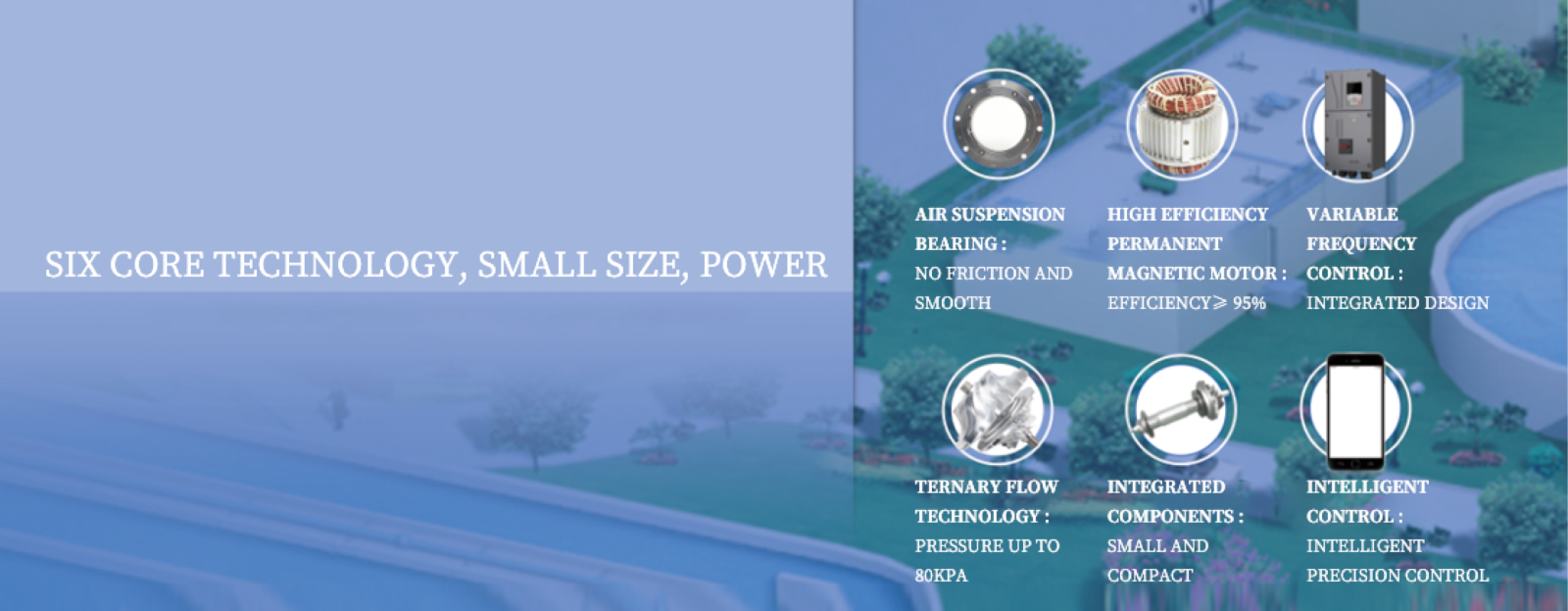
Air suspension centrifugal blower services FAQs Guide
Are you looking for a quick review guide about Air suspension centrifugal blowerservices?
An ultimate FAQ buying guide is available to help you.This guide contains all the information about all the important facts, figures, and various processes regarding Air suspension centrifugal blower services.
Let’s continue!
2.About Air suspension centrifugal blower customization services
3.What is the Overall Efficiency Rating of a Turbo Blower?
4.How does an Air suspension centrifugal blower work?
5.About Air suspension centrifugal blower overseas warehouse
6.Why Should I Choose a Turbo Blower for My Industrial Operation?
7.How Does a Turbo Blower Affected by Changes in Ambient Temperature?
8.About Air suspension centrifugal blower payment method
9.Are There Environmental Benefits to Using a Turbo Blower?
10.What are the maintenance requirements for an Air suspension centrifugal blower?
1.What Types of Materials Can a Turbo Blower Handle?
We focus on teamwork and communication to achieve common goals, We attach great importance to this detail.
Turbo blowers are versatile machines that can handle a wide range of materials. Some of the most common materials that can be handled by a turbo blower include:
1. Air and gases: Turbo blowers are primarily used for moving air and gases in various industrial processes. They can handle a wide range of gases, including air, nitrogen, oxygen, and other inert gases.
2. Liquids: Turbo blowers can also handle liquids, such as water, oil, and other fluids. They are commonly used in wastewater treatment plants to aerate and mix liquids.
3. Solids: Turbo blowers can handle solid materials in the form of dust, powders, and granules. They are often used in pneumatic conveying systems to transport solid materials in industries such as food processing, pharmaceuticals, and chemical manufacturing.
4. Vapors: Turbo blowers can handle vapors and fumes from various industrial processes. They are commonly used in ventilation systems to remove harmful vapors and maintain a safe working environment.
5. Particulates: Turbo blowers can handle particulate matter, such as dust, dirt, and debris. They are often used in industrial cleaning applications to remove debris and maintain a clean working environment.
6. Fibrous materials: Turbo blowers can handle fibrous materials, such as paper, textiles, and wood fibers. They are commonly used in paper mills and textile factories to move and process these materials.
7. Corrosive materials: Turbo blowers can handle corrosive materials, such as acids and chemicals. They are often made from corrosion-resistant materials to withstand exposure to these substances.
It is important to note that the specific materials a turbo blower can handle may vary depending on its design and construction. It is always best to consult the manufacturer or a technical expert to determine if a turbo blower is suitable for a specific material.
2.About Air suspension centrifugal blower customization services
RAETTS has more than 20 peoples R&D team,which can help customer to do customization for the air blowers to meet the different applications
3.What is the Overall Efficiency Rating of a Turbo Blower?
We are a new Air suspension centrifugal blower manufacturer.
The overall efficiency rating of a turbo blower can vary depending on the specific model and manufacturer. However, on average, turbo blowers have an overall efficiency rating of around 70-80%. This means that for every 100 units of energy input, the turbo blower can produce 70-80 units of output energy. Factors such as design, size, and operating conditions can also affect the efficiency of a turbo blower.
4.How does an Air suspension centrifugal blower work?
The main structure of the air blower is including motor,shaft,bearing and impeller.When the motor is running,it will drive the shaft to run,then shaft drive bearing to run,then bearing drive the impeller to run.After the impeller runs,it will generate a vacuum area surrounding the impeller and suck the surrounding air inside.Then the air will be compressed by the impeller and discharged outside.
5.About Air suspension centrifugal blower overseas warehouse
RAETTS is cooperating with global distributors,some distributors has stock or sample in their warehouse.For now,RAETTS has Germany factory warehouse,and we are building the USA warehouse.
6.Why Should I Choose a Turbo Blower for My Industrial Operation?
We should enjoy a good reputation in the industry, and we can increase the added value of the products of cooperative customers through technological innovation.
1. Energy Efficiency: Turbo blowers are known for their high energy efficiency compared to traditional blowers. They use less energy to produce the same amount of air flow, resulting in lower operating costs and reduced energy consumption.
2. Compact Design: Turbo blowers have a compact design, making them ideal for industrial operations with limited space. They can be installed in tight spaces and still provide high air flow rates.
3. Low Maintenance: Turbo blowers have fewer moving parts compared to traditional blowers, resulting in lower maintenance requirements and costs. This also means less downtime for maintenance, resulting in increased productivity.
4. Variable Speed Control: Turbo blowers have variable speed control, allowing for precise control of air flow and pressure. This makes them suitable for a wide range of industrial applications.
5. Quiet Operation: Turbo blowers operate at a lower noise level compared to traditional blowers, making them ideal for industrial operations where noise levels need to be kept to a minimum.
6. Durability: Turbo blowers are designed to be durable and long-lasting, with minimal wear and tear on the components. This results in a longer lifespan and reduced replacement costs.
7. Environmental Benefits: Turbo blowers are environmentally friendly, as they produce less noise and vibration, and have lower energy consumption. This makes them a more sustainable option for industrial operations.
8. Easy Installation: Turbo blowers are easy to install and can be up and running in a short amount of time. This reduces installation costs and downtime for the operation.
9. High Air Flow Rates: Turbo blowers are capable of producing high air flow rates, making them suitable for a wide range of industrial applications that require high volumes of air.
10. Customizable Options: Turbo blowers can be customized to meet the specific needs of an industrial operation. This includes options for different air flow rates, pressure levels, and control systems.
7.How Does a Turbo Blower Affected by Changes in Ambient Temperature?
We attach importance to the innovation ability and team spirit of employees, have advanced R & D facilities and laboratories, and have a good quality management system.
A turbo blower is a type of centrifugal blower that uses a high-speed impeller to generate air flow. The performance of a turbo blower can be affected by changes in ambient temperature in several ways:
1. Air Density: The density of air decreases as the temperature increases. This means that the same volume of air at a higher temperature will have a lower mass compared to the same volume of air at a lower temperature. As a result, the air entering the turbo blower will have a lower mass, which can affect the blower’s performance.
2. Air Viscosity: The viscosity of air also decreases with an increase in temperature. This means that the air will be less resistant to flow, resulting in a decrease in pressure and flow rate. This can affect the efficiency of the turbo blower, as it may require more power to achieve the desired flow rate.
3. Bearing Temperature: The bearings of a turbo blower can be affected by changes in ambient temperature. If the temperature is too high, it can cause the bearings to overheat, leading to premature wear and failure. On the other hand, if the temperature is too low, the bearings may not reach their optimal operating temperature, resulting in reduced efficiency and increased wear.
4. Motor Performance: The motor that drives the turbo blower can also be affected by changes in ambient temperature. If the temperature is too high, it can cause the motor to overheat, leading to reduced performance and potential damage. Similarly, if the temperature is too low, the motor may not reach its optimal operating temperature, resulting in reduced efficiency and increased wear.
To mitigate the effects of ambient temperature on a turbo blower, it is important to properly size and select the blower for the specific operating conditions. This may include using a larger blower or incorporating a cooling system to maintain optimal operating temperatures. Regular maintenance and monitoring of the blower’s performance can also help identify any issues caused by changes in ambient temperature and address them promptly.
8.About Air suspension centrifugal blower payment method
RAETTS accept payment by T/T(30% advance payment,70% before shipment)
9.Are There Environmental Benefits to Using a Turbo Blower?
Our mission is to provide customers with the best solutions for Air suspension centrifugal blower.
Yes, there are several environmental benefits to using a turbo blower:
1. Energy Efficiency: Turbo blowers are more energy efficient compared to traditional blowers, which means they consume less energy to produce the same amount of air flow. This results in lower energy consumption and reduced carbon emissions.
2. Reduced Noise Pollution: Turbo blowers are designed to operate at lower noise levels compared to traditional blowers. This helps to reduce noise pollution in the surrounding environment, making them ideal for use in residential areas or noise-sensitive locations.
3. Lower Maintenance Requirements: Turbo blowers have fewer moving parts compared to traditional blowers, which means they require less maintenance and have a longer lifespan. This reduces the need for frequent replacements and disposal of old equipment, resulting in less waste and environmental impact.
4. Reduced Carbon Footprint: As turbo blowers are more energy efficient, they help to reduce the carbon footprint of the facility where they are used. This is beneficial for the environment as it helps to mitigate the effects of climate change.
5. Improved Air Quality: Turbo blowers are designed to provide a consistent and clean air flow, which helps to improve the air quality in the surrounding environment. This is especially important in industrial settings where air pollution can be a major concern.
6. Reduced Water Usage: Some turbo blowers are designed to use water as a lubricant, which reduces the need for oil or other lubricants. This helps to conserve water resources and reduce the risk of water pollution.
Overall, using a turbo blower can have a positive impact on the environment by reducing energy consumption, noise pollution, carbon emissions, and water usage, while also improving air quality and reducing maintenance requirements.
10.What are the maintenance requirements for an Air suspension centrifugal blower?
Different types of air blowers have different maintenance requirements,for traditional roots blower,end users need to add oil for lubrication,replace the ball bearing and change the air inlet filter periodically.But for turbo blower,the maintenance is quite easy and convenient,end users only need to change the air inlet filters 1-3 months.
Tag:industrial blower solution for cement industry,wastewater aeration blower,Air Compressors and Blowers for Mining,Aeration Blowers Wastewater Treatment,TURBO BLOWER AND COMPRESSOR,Fermentation Air Blower,Blower for hot-dip galvanized,high efficiency air blower

